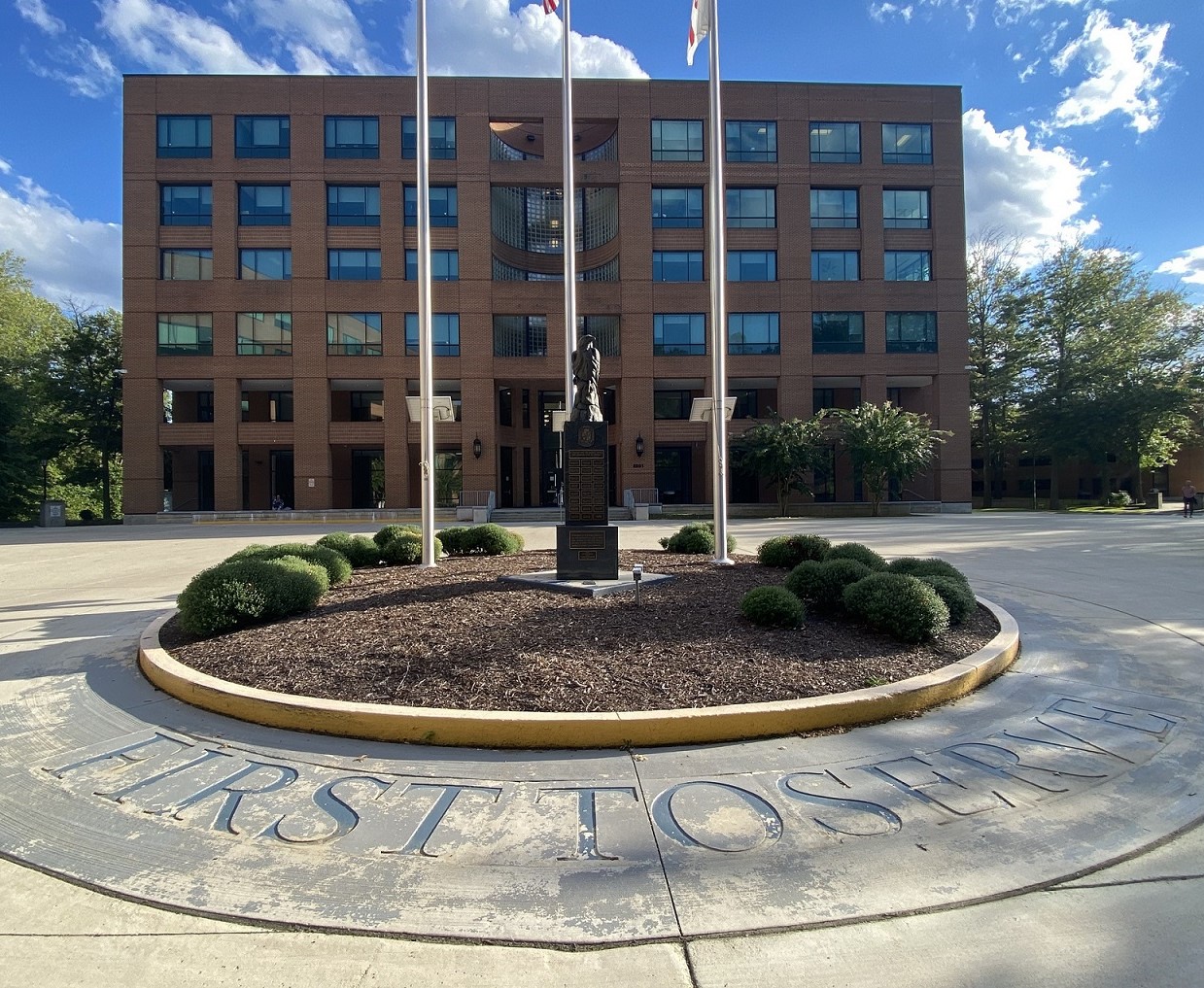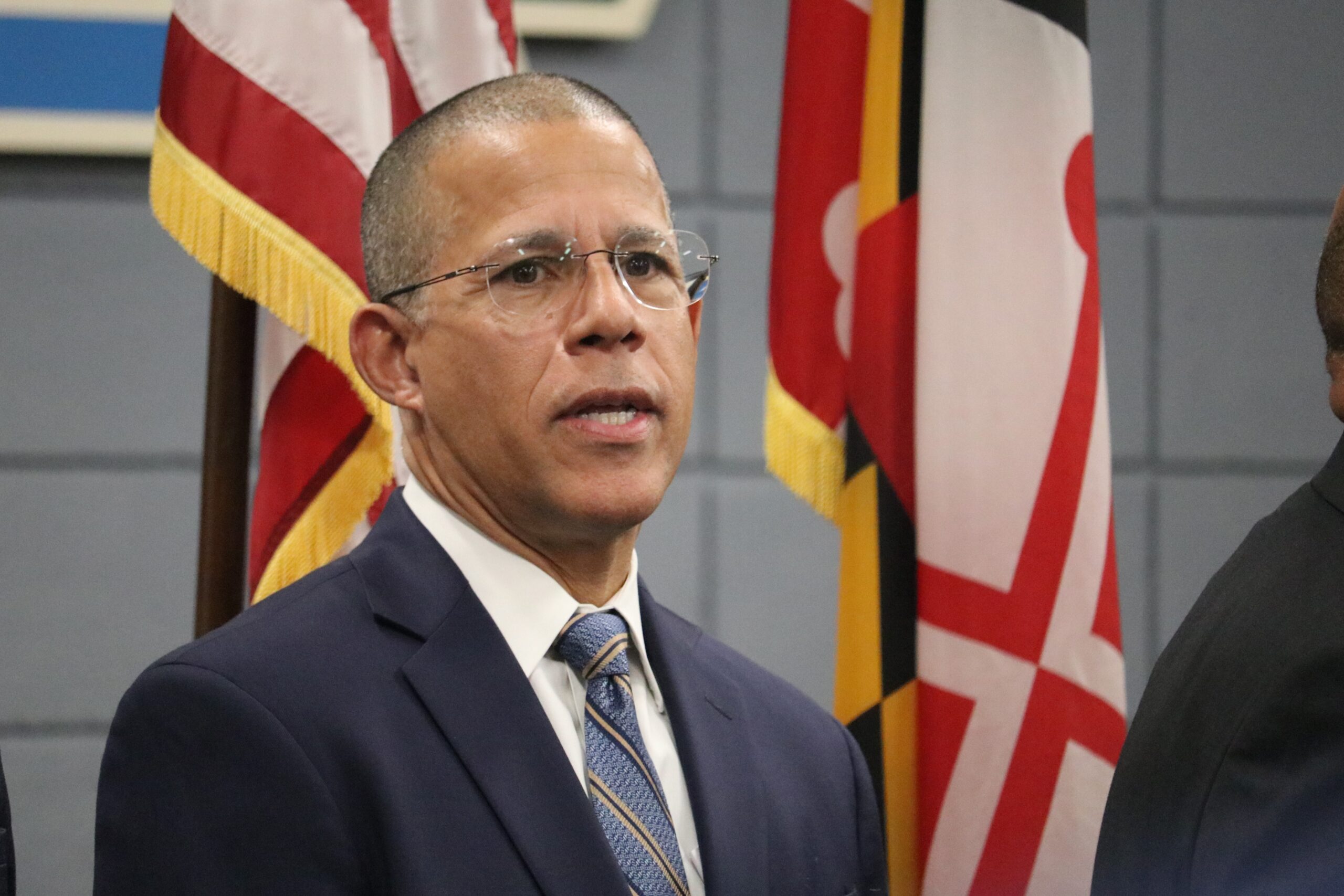Prince George’s Council scheduled to name appointees for new police accountability board

Prince George’s County is expected to move slightly closer Tuesday to establishing the jurisdiction’s first-ever police accountability board — at least part of it.
That’s because the county council would appoint five of the 11 board members. County Executive Angela Alsobrooks (D) will nominate five others and the board chair, who will also eventually need council approval.
The council is tentatively expected to name its own appointees on Tuesday while a public hearing to review Alsobrooks’ choices is set for Oct. 24.
Some residents such as Dawn Dalton of Upper Marlboro have said the county executive shouldn’t be permitted to choose anyone, for two reasons.
A redacted report and legal brief first filed in federal court in June 2020 outlined racist and retaliatory practices in the police department. The day after the report was released, former Police Chief Hank Stawinski, who had worked with Alsobrooks when she served as county state’s attorney prior to her election as county executive in November 2018, resigned.
The county reached two major settlements with Prince George’s families after police shot and killed their loved ones.
In September 2020, the county agreed to pay the family of William Green approximately $20 million after a police officer killed Green while he was handcuffed in a police cruiser.
The family of Jacai Colson announced in May it reached a $400,000 settlement with the county. Colson, a former detective with the county police department, was shot and killed by a fellow officer in 2016 after he mistook Colson for one of the three shooters who ambushed a police station.
“Angela Alsobrooks had all the opportunity to do the right thing. She was the state’s attorney and knew which officers were right and wrong,” Dalton, whose son was a victim of an assault by Prince George’s police, said Friday. “That’s the same person we allowed to fight [various lawsuits] and is the same person we’re supposed to get proper accountability? That’s a problem for me.”
Prince George’s officials and others from the state’s 22 other counties and the city of Baltimore must follow state law, which became law after the legislature overrode vetoes made by Gov. Larry Hogan (R), to establish police accountability boards. Some of the board’s responsibilities include holding quarterly meetings with law enforcement leaders, receiving complaints of misconduct and appointing civilians to an administrative charging committee, which will review allegations from the public against police officers.
An officer can appeal a decision before a local trial board, which can include an active or retired judge (appointed by the chief executive of the jurisdiction); a civilian (appointed by the police board); and a police officer of equal rank of the officer accused of misconduct (appointed by the head of the law enforcement agency).
PAB concerns
The ACLU of Maryland continues to express concerns about how the police accountability boards, also known as PABs, are being established in various jurisdictions.
Yanet Amanuel, public policy director for the ACLU, said in an email Friday that the majority of the boards in Maryland allow former or retired law enforcement officers to serve, “which undermines the intent of the P.A.B. serving as a community driven oversight board that will be accountable to the community.”
Amanuel also said the regulations from the state’s Police Training Standards Commission shouldn’t require members from the police board and administrative charging committee to sign confidential agreements until a final disposition is reached, which could take months or years because of appeals in court.
“While it may be reasonable to limit the P.A.B. from disclosing information it received from reviewing documents sent to it from the Administrative Charging Committee pending the conclusion of a case, anything beyond that is neither justified nor consistent with the P.A.B.’s mandate under the Maryland Police Accountability Act,” she said.
Other criminal justice reform advocates such as Joanna Silver said the police boards should have investigatory powers. According to the state legislation, a committee “may” request additional information from a law enforcement agency that includes subpoenas.
“We hope that our county gives [the PAB] investigatory powers so the PAB can investigate individual cases,” said Silver, a member of the Silver Spring Justice Coalition in Montgomery County. “The administrative charging committee can do it, but that doesn’t mean [it] will do it.”
Although Montgomery County’s nine-member police board holds its next meeting Thursday, Silver said more work is needed.
For instance, she said the county seeks a director to assist the police board and administrative charging committee. According to a job description, the person chosen would work full time to help administer protocols and procedures with both bodies, prepare complaints for the committee to review and be a “subject matter expert” on state and local police accountability legislation and regulations.
“We are three months in and the county has just now advertised for the position,” Silver said. “So the [PAB] has had to rely on county staff to do all of its work. That’s not how this board is supposed to function. It’s supposed to be independent.”




 Creative Commons Attribution
Creative Commons Attribution